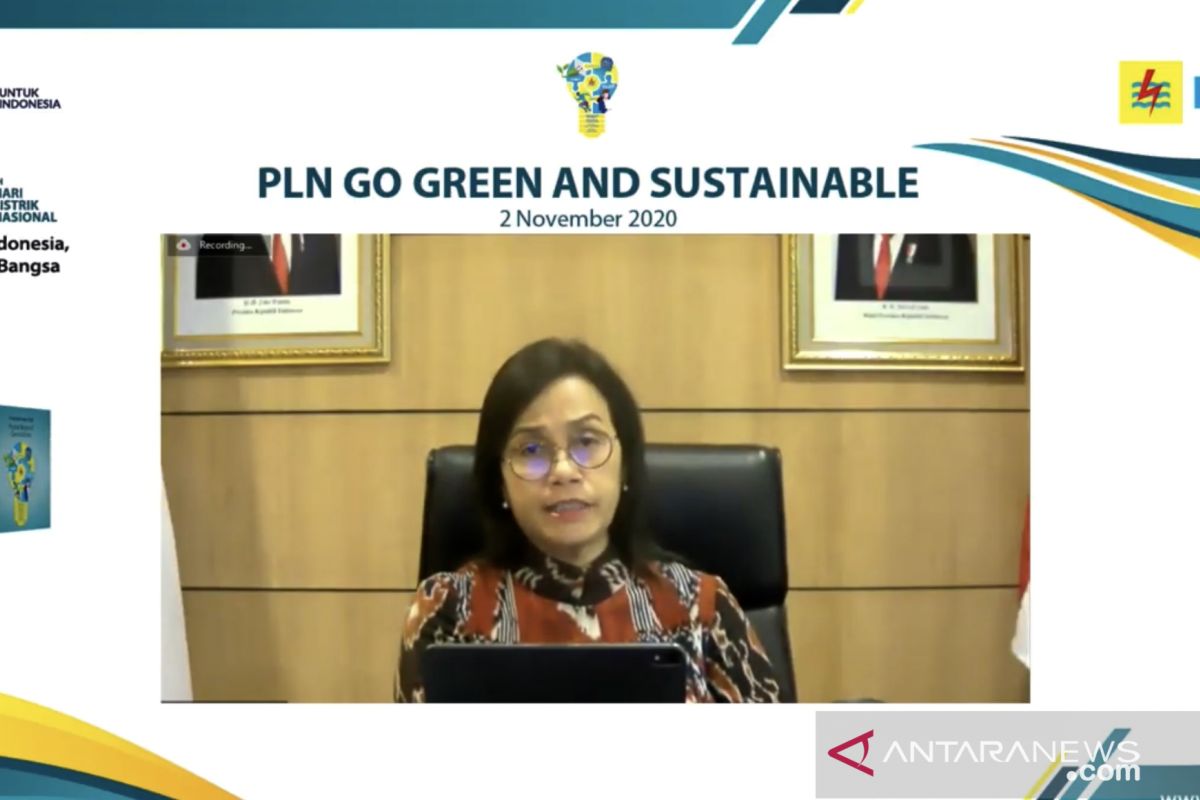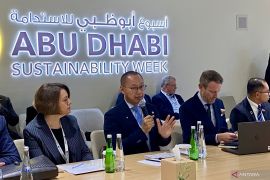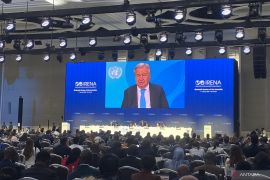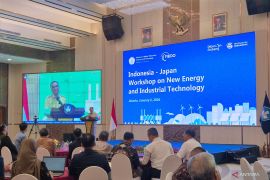We remain focused on handling COVID-19, but it does not mean that we are disregarding the risks of climate change. We will continue to uphold our commitment to following policies and instruments in directing and handling climate change issuesJakarta (ANTARA) - Finance Minister Sri Mulyani Indrawati expressed strong belief in the Indonesian government's commitment to handling issues on climate change despite its current emphasis on tackling the COVID-19 pandemic.
"We remain focused on handling COVID-19, but it does not mean that we are disregarding the risks of climate change. We will continue to uphold our commitment to following policies and instruments in directing and handling climate change issues," the minister noted during a virtual discussion held from Jakarta, Monday.
The minister pointed out that such commitment was reflected in the foundations of the Sustainable Development Goals (SDGs) that had become the mainstream in determining the country's measures, including in the development planning budget that was then translated into the adoption of policies and instruments.
"Surely, the Indonesian government remains fully committed to the Sustainable Development Goals," she stressed.
The commitment is even stronger based on Indonesia's target of reaching 23 percent, or 45 gigawatts of its national primary energy mix from new and renewable energy sources by 2025.
On the other hand, Indrawati noted that in Indonesia, renewable energy accounted for 9.15 percent of the overall power generation in the electricity sector last year, equivalent to 11-percent usage of renewable energy from the total electricity generated.
"This is a huge challenge for us to achieve the 23-percent renewable energy use in our national energy mix," she noted.
Furthermore, Indonesia, with a renewable energy potential of 442.4 GW, should streamline its policies as the country has only utilized 10.4 GW, or 2.4 percent of its renewable energy potential.
"There surely is something that we need to shift in order to capitalize on such immense potential," she stated.
To this end, the government is offering incentives in the form of tax allowances, tax holidays, import exemptions for companies investing in renewable energy, as well as land and building tax exemptions.
In terms of regional fiscal incentives, the government has also provided special allocation funds or special transfer grants to allow local governments to develop infrastructure for renewable energy, especially solar bio-gas and geothermal power plants.
"We also provide this transfer to encourage local governments to regulate measures to support (renewable) energy, in hopes that it would yield a more circular economy," she affirmed.
Related news: Green recovery to boost environment-based economic transformation: RI
Related news: International cooperation crux for renewable energy development Close
EDITED BY INE
Translator: Astrid Faidlatul Habibah/Aria
Editor: Fardah Assegaf
Copyright © ANTARA 2020












